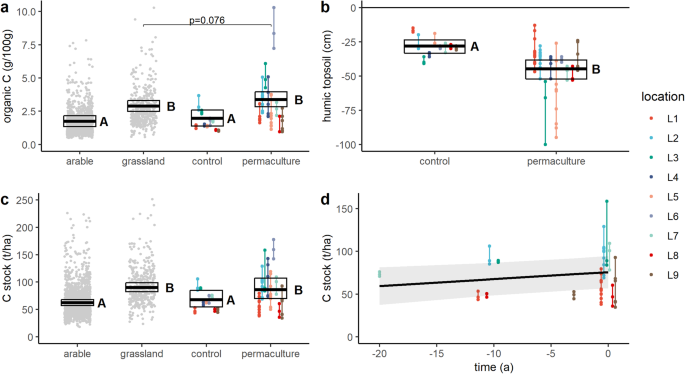Abstract
Permaculture is proposed as a tool to design and manage agroecological systems in response to the pressing environmental challenges of soil degradation, climate change and biodiversity loss. However, scientific evidence on the effects of permaculture is still scarce. In this comprehensive study on a wide range of soil and biodiversity indicators, we examined nine farms utilizing permaculture and paired control fields with locally predominant agriculture in Central Europe. We found 27% higher soil carbon stocks on permaculture sites than on control fields, while soil bulk density was 20% lower and earthworm abundance was 201% higher. Moreover, concentrations of various soil macro- and micronutrients were higher on permaculture sites indicating better conditions for crop production. Species richness of vascular plants, earthworms and birds was 457%, 77% and 197% higher on permaculture sites, respectively. Our results suggest permaculture as effective tool for the redesign of farming systems towards environmental sustainability.
Yessss! There’s not a lot of data on permaculture yet, but it’s a promising system. The homeopaths have really taken a shining to it and they pollute anything they touch with made up data and inflated price tags for white, faux-educated yuppies. There’s a lot of superstition mixed in with evidence based best practices in permaculture.


